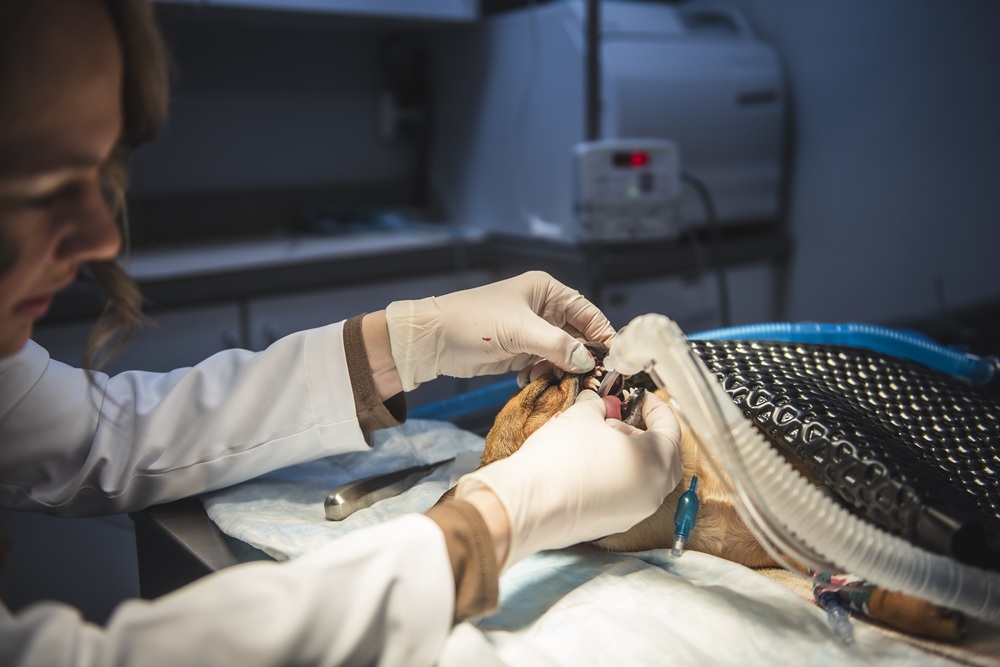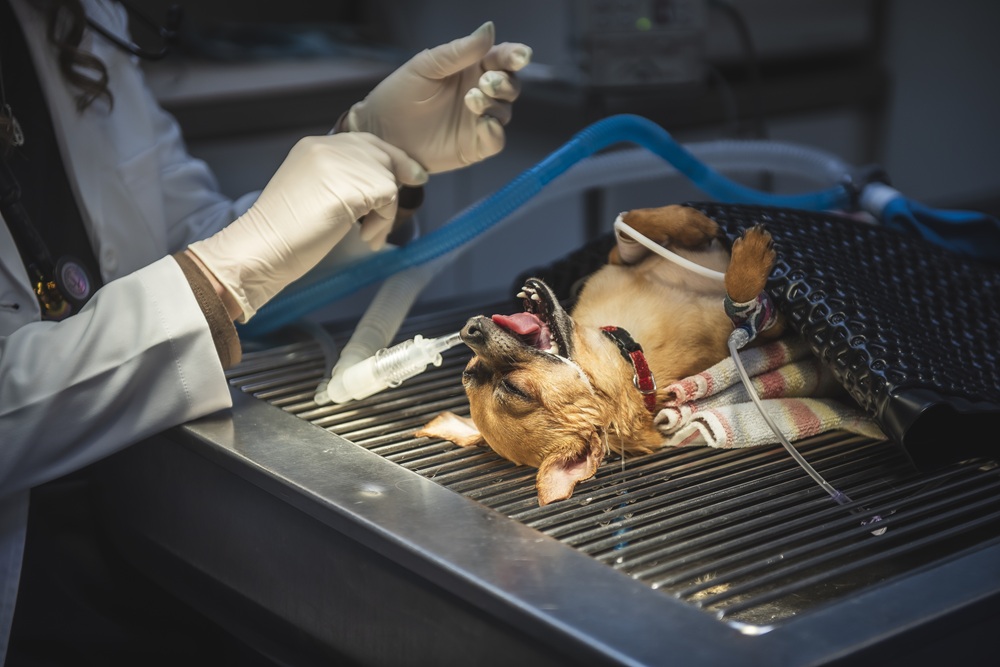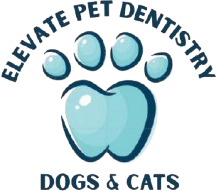When it comes to our beloved pets, even a minor ailment can cause significant concern. An uncomplicated dental fracture might sound less severe, but it still warrants professional veterinary attention to prevent escalation into more serious issues. At Elevate Pet Dentistry, we provide experienced, compassionate care for dental injuries, ensuring your pet’s swift return to health and happiness.
Uncomplicated Dental Fractures

Signs of Tooth Fractures in Dogs and Cats
Pets with uncomplicated dental fractures may not always show obvious signs of discomfort, but it’s important to watch for any changes, including:
- Difficulty eating or chewing
- Pawing at the mouth or face
- Sensitivity to touch around the mouth
- Reluctance to play with chew toys
- Chipped or broken teeth
- Bad breath, which may indicate underlying dental issues

Importance of Treatment for Dental Fractures
While uncomplicated dental fractures may seem minor, they can lead to more serious dental problems if left untreated. Broken teeth can become sensitive, develop infections, or progress into complicated fractures involving the pulp, which are more painful and require extensive treatment.
Our Approach to Treatment
At Elevate Pet Dentistry, we offer comprehensive care for uncomplicated dental fractures, including:
- Thorough Examination
- Our vets conduct a comprehensive dental examination, often under anesthesia, to assess the extent of the fracture and overall dental health.
- Dental X-Rays to assess the extent of the injury
- We may use dental radiographs (x-rays) to get a clear picture of the tooth’s structure and ensure there is no underlying damage that needs attention.
- Treatment Options such as smoothing, bonding, or extractions if needed
- For uncomplicated fractures, treatment may include smoothing the fractured edge and applying a dental sealant to protect the tooth from further decay. In cases where the fracture is at risk of progressing, more protective measures, such as crowns, may be recommended.
- Preventive Care Advice tailored to your pet’s lifestyle and needs
- Our team will provide guidance on how to prevent future dental fractures, including tips on safe chew toys, diet, oral hygiene, and routine dental care.
Preventive Measures to Avoid Dental Fractures
Maintaining your pet’s dental health involves preventing injuries as well as treating them. Here are several ways to help reduce the risk of dental fractures:
- Appropriate Chew Toys – Choose chew toys that support dental health without damaging teeth. Look for flexible, durable materials. Avoid hard items like bones, hooves, or antlers, which can easily cause teeth to crack or break.
- Regular Dental Check-Ups – Just like people, pets benefit from routine dental visits. These check-ups allow veterinarians to monitor oral health and detect early signs of wear, weakness, or damage.
- Professional Dental Cleanings – Routine cleanings remove plaque and tartar buildup, which can weaken teeth and lead to infection, increasing the risk of fractures.
- Proper Nutrition – Feed a balanced diet and consider dental-specific diets or treats that reduce plaque and support strong teeth.
- Home Teeth Brushing – While it may seem daunting, brushing your pet’s teeth regularly is one of the most effective ways to prevent dental problems. Use a pet-safe toothbrush and toothpaste for best results.
